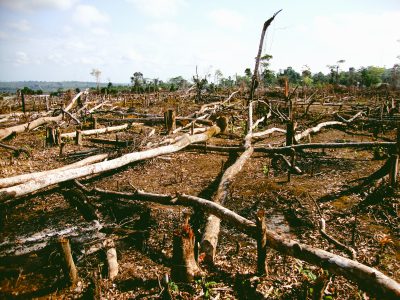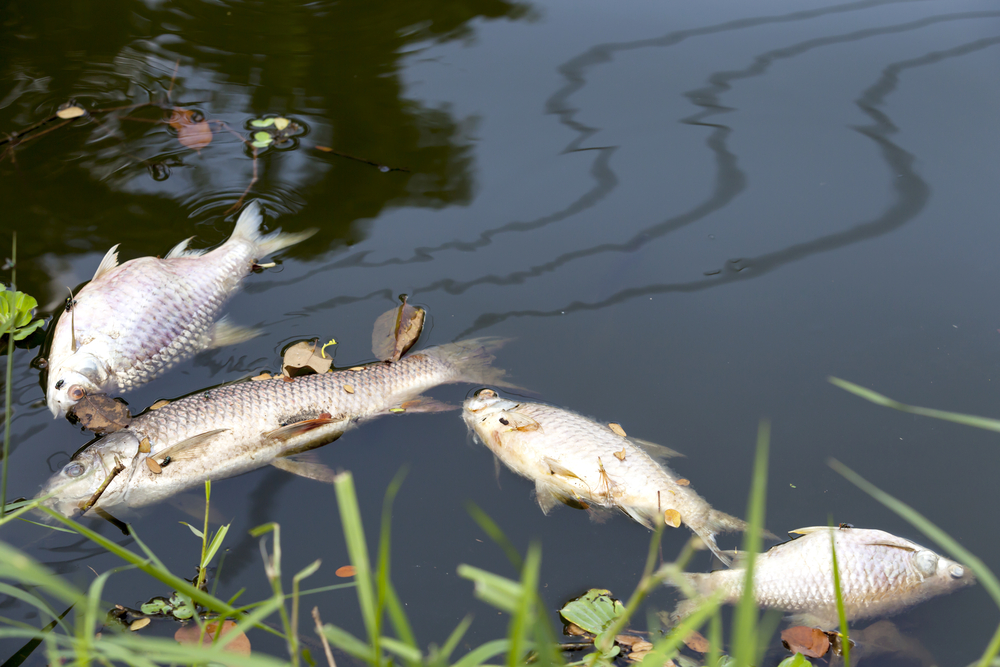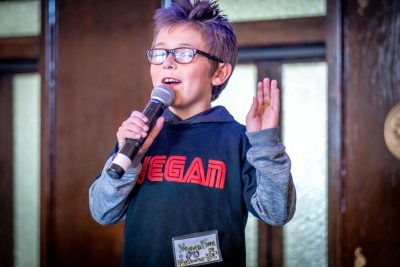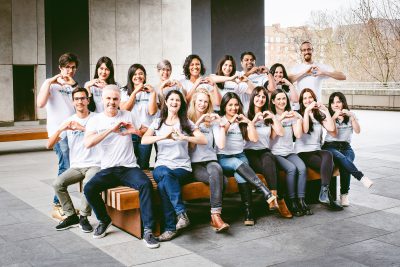Homes and businesses regularly burnt to the ground by raging wildfires. Huge water shortages due to severe droughts. An increase in respiratory and infectious diseases. We must take drastic action to slow down climate change and one thing we must pay attention to is that industrial animal agriculture is destroying our planet.
A 2018 report by the UN Intergovernmental Panel on Climate Change (IPCC) declared that we have just over a decade to prevent irreversible climate catastrophe.
Perhaps you’re already doing your bit to save the planet. Maybe you’ve switched to using energy-saving light bulbs, started recycling, and buying eco-friendly products from laundry detergent and ‘green’ fashion to energy-efficient cars. All of these measures are fantastic and kudos to you for your efforts.
But if we stand any real chance of literally saving our planet, we have to get real about one of the most dangerous culprits responsible for climate change and the destruction and devastation of our environment: animal agriculture.
Back in 2006, the UN warned in its report Livestock’s Long Shadow that animal agriculture is “One of the most significant contributors to today’s most serious environmental problems.” So serious in fact that animals raised for meat, dairy, and eggs produce more global warming greenhouse gases than the fuel emissions from the entire worldwide transportation combined.
But it doesn’t end there: livestock production also contributes to shortages of fresh water, land destruction and deforestation, air and water pollution, loss of habitat, and species extinction.
Let’s look at some of these in greater detail.
Animal agriculture impacts our water
The world is moving towards increasing problems of freshwater shortage, scarcity and depletion. By 2025, 1.8 billion people will be living in countries or regions with absolute water scarcity, and two-thirds of the world’s population could be living under water-stressed conditions.
The livestock sector is a key player in increasing water use, accounting for over eight percent of global human water use, mostly for the irrigation of feed crops – and that eight percent figure becomes much higher when you take into account the uses of water in animal agriculture that are not just for irrigation.
According to the Water Footprint Network, animal-based foods use considerably more water than their plant-based counterparts.
Animal agriculture impacts land destruction and species loss
Livestock is the world’s largest user of land resources, with grazing land and cropland dedicated to the production of feed representing almost 80 percent of all agricultural land.
The increase in the production of livestock is also a key factor in deforestation, especially in Latin America where the greatest amount of deforestation is occurring – 70 percent of previously forested land in the Amazon is occupied by pastures, and feed crops for farmed animals cover a large part of the remainder. The soy and grains grown in these areas are not for human consumption, but to feed farmed animals who are then killed for human consumption.
This destruction of land also displaces wild animals, resulting in loss of habitat and species. On a global scale, 60 percent of animal populations have been wiped out since 1970. This has led some scientists to declare we are entering the world’s sixth mass extinction and the first to be caused by a species.
Animal agriculture causes pollution
The waste produced by the 80 billion animals farmed each year is typically stored in large lagoons where it emits toxic gases. It often leaks out or overflows, causing devastation to both land and waterways. Once in the water table, it threatens drinking supplies – including possible contamination from E.coli, salmonella, pharmaceuticals and insecticides – damages wetlands and fuels the rapid accumulation of algae which, in turn, wipes out aquatic life.
What can you do to combat the adverse effects of animal agriculture?
One of the major actions you can take to save the planet, for yourself, and for future generations, is to make your diet greener by ditching animal products in favor of plant-based eating.
The carbon footprint of animal foods is much higher than most plant-based foods, with beef is 33 times worse than tofu.
With just a few years left to rescue the very organism that keeps us alive, we can’t afford to put a Band-Aid over a gaping, bleeding wound. We need urgent, drastic measures to heal the planet. What will you do?
Katrina Fox is a journalist and PR consultant who has written for a broad range of print and online media in the UK, US, and Australia. Originally from the UK, Katrina is based in Sydney.




